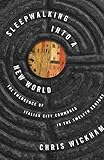Sleepwalking into a New World : The Emergence of Italian City Communes in the Twelfth Century / Chris Wickham.
Material type: TextSeries: The Lawrence Stone Lectures ; 7Publisher: Princeton, NJ : Princeton University Press, [2015]Copyright date: ©2015Edition: Course BookDescription: 1 online resource (320 p.) : 7 mapsContent type:
TextSeries: The Lawrence Stone Lectures ; 7Publisher: Princeton, NJ : Princeton University Press, [2015]Copyright date: ©2015Edition: Course BookDescription: 1 online resource (320 p.) : 7 mapsContent type: - 9780691181141
- 9781400865826
- City-states -- Italy -- History
- Communal living -- Italy -- History
- HISTORY / Medieval
- Emilia
- Italy
- Lombardy
- Milan
- Piemonte
- Pisa
- Renaissance
- Romagna
- Rome
- Tuscany
- Veneto
- aristocracy
- aristocrats
- assemblies
- autonomous city-states
- civic culture
- civic pride
- collaboration
- collective government
- colloquium
- commerce
- communes
- consuls
- elite
- families
- historiography
- institutional creativity
- military
- papacy
- papal reform
- political history
- élite
- 945.04 23
- DG529
- online - DeGruyter
- Issued also in print.
| Item type | Current library | Call number | URL | Status | Notes | Barcode | |
|---|---|---|---|---|---|---|---|
 eBook
eBook
|
Biblioteca "Angelicum" Pont. Univ. S.Tommaso d'Aquino Nuvola online | online - DeGruyter (Browse shelf(Opens below)) | Online access | Not for loan (Accesso limitato) | Accesso per gli utenti autorizzati / Access for authorized users | (dgr)9781400865826 |
Browsing Biblioteca "Angelicum" Pont. Univ. S.Tommaso d'Aquino shelves, Shelving location: Nuvola online Close shelf browser (Hides shelf browser)

|

|

|

|

|

|

|
||
| online - DeGruyter Human Nature & Jewish Thought : Judaism's Case for Why Persons Matter / | online - DeGruyter How Propaganda Works / | online - DeGruyter Eating People Is Wrong, and Other Essays on Famine, Its Past, and Its Future / | online - DeGruyter Sleepwalking into a New World : The Emergence of Italian City Communes in the Twelfth Century / | online - DeGruyter The Enlightenment : History of an Idea - Updated Edition / | online - DeGruyter Why Did Europe Conquer the World? / | online - DeGruyter Just Married : Same-Sex Couples, Monogamy, and the Future of Marriage / |
Frontmatter -- CONTENTS -- List of Maps -- Acknowledgements -- A Note on Personal Names -- 1. COMMUNES -- 2. MILAN -- 3. PISA -- 4. ROME -- 5. ITALY -- Notes -- Bibliography -- Index -- Backmatter
restricted access online access with authorization star
http://purl.org/coar/access_right/c_16ec
Amid the disintegration of the Kingdom of Italy in the eleventh and twelfth centuries, a new form of collective government-the commune-arose in the cities of northern and central Italy. Sleepwalking into a New World takes a bold new look at how these autonomous city-states came about, and fundamentally alters our understanding of one of the most important political and cultural innovations of the medieval world.Chris Wickham provides richly textured portraits of three cities-Milan, Pisa, and Rome-and sets them against a vibrant backcloth of other towns. He argues that, in all but a few cases, the elites of these cities and towns developed one of the first nonmonarchical forms of government in medieval Europe, unaware that they were creating something altogether new. Wickham makes clear that the Italian city commune was by no means a democracy in the modern sense, but that it was so novel that outsiders did not know what to make of it. He describes how, as the old order unraveled, the communes emerged, governed by consular elites "chosen by the people," and subject to neither emperor nor king. They regularly fought each other, yet they grew organized and confident enough to ally together to defeat Frederick Barbarossa, the German emperor, at the Battle of Legnano in 1176.Sleepwalking into a New World reveals how the development of the autonomous city-state took place, which would in the end make possible the robust civic culture of the Renaissance.
Issued also in print.
Mode of access: Internet via World Wide Web.
In English.
Description based on online resource; title from PDF title page (publisher's Web site, viewed 29. Jul 2021)


